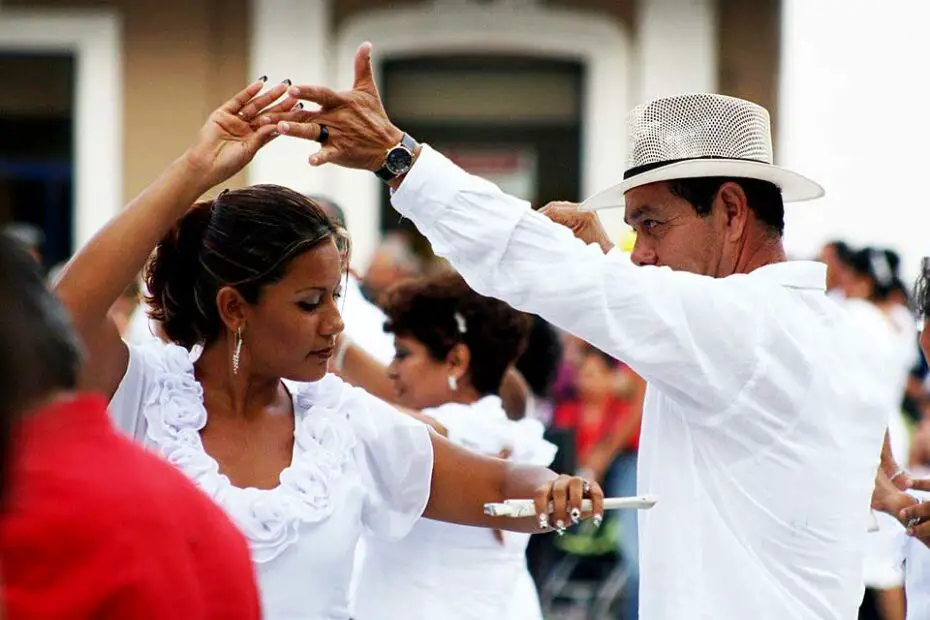When you consider that nearly 50 million people speak Spanish as a first or second language in the United States alone, along with the fact that this is the most studied foreign language in North America, it makes perfect sense to choose Spanish when interested in learning a new language.
Reasons for Learning Spanish
Before listing some of the common Spanish phrases used most often, let us look at the primary benefits of learning this language.
Improved Job Prospects
Having the ability to speak any second or third language puts you in a much better position for jobs. However, because Spanish is so widely spoken, it helps the most. As a bilingual person, you will discover new opportunities and often, at a higher pay rate. Today, a growing number of companies see Spanish-speaking employees as an incredible asset. In addition to job options in the U.S., becoming fluent in Spanish allows you to seek employment overseas.
Enhanced Travel
Although there are different dialects of Spanish, learning the basics will make travel more enjoyable and safer. As you hone your skill, you can travel to more destinations including Brazil, Portugal, and others.
Higher Performance
By learning Spanish, you can help a much broader range of individuals and families, regardless of the type of job you do.
Teach Your Children
Once you learn the most commonly used Spanish phrases, you can begin teaching your kids so that they too will enjoy the benefits of being bilingual. If you have older children or teenagers, consider starting the learning process together. Not only will you both learn a second language but also share quality bonding time.
General Understanding
Whether in a retail shop, at the grocery store, or watching a foreign film, you will understand what other people say. In some situations, that knowledge could enhance your safety.
Broaden Your Inner Circle
As your speech improves, you can make new Spanish speaking friends.
Nut now, without further ado, let’s take look at our list of common Spanish phrases.
Common Spanish Greetings

- ¡Hola! – Hi!
- Buenos días – Good morning (literally translates as good days, but is commonly only used before lunch)
- Buenas tardes – Good afternoon (used after lunch, which is usually quite late)
- Buenas noches – Good evening, good night (can be used both as a welcome and as good bye)
- Es un gusto conocerte. – It is a pleasure to meet you.
- ¿Cómo está? – How are you? (formal version)
- ¿Cómo estás? – How are you? (informal version)
- ¡Cuánto tiempo sin verte! – Long time no see!
Common Spanish Phrases for Directions
When you need advice how to get to a particular place, keep in mind these Spanish phrases for directions.
- ¿Dónde está el ayuntamiento? — Where is the town hall?
- ¿Dónde hay una parada de taxis? — Where is a cab stand?
- En la esquina — On the corner.
- Al otro lado de la plaza — On the other side of the square.
- Al lado del cine — Next to the cinema.
- Detrás del parque — Behind the park.
- Entre el supermercado y la farmacia — Between the supermarket and the pharmacy.
Common Medical Phrases in Spanish
Whether you are interested in going into the medical field or simply need to know specific words to get medical assistance when in a foreign country, the following are the best Spanish phrases to learn.
- Por favor, llame una ambulancia – Please call an ambulance.
- Necesito la policia – I need the police.
- Puedes llevarme al hospital? – Can you take me to the hospital?
- No me siento bien – I’m not feeling well.
- Ayúdame, han robado or Ayúdame, sido asaltado – Help, I’ve been robbed or Help, I’ve been assaulted.
Common Spanish Phrases when Shopping
People throughout Spanish-speaking parts of the world share a passion with millions in other countries: Shopping. When dealing with a local retailer who speaks this language or while shopping in a different country, the following Spanish phrases come in handy. This makes it easier for you to fit in more like a local, which can result in paying lower prices.
- ¿Tu vendes (item)? – Do you sell (item)?
- ¿Cuánto cuesta este? – How much is this?
- ¿Aceptas la moneda estadounidense? – Do you accept American currency?
- ¿Aceptas tarjetas de credito? – Do you accept credit cards?
- ¿Aceptaras (dollar amount)? – Will you accept (dollar amount)?
- ¿De que talla es? – What size is this?
- ¿Esto viene en otro color? – Does this come in another color?
- Estoy buscando un regalo – I’m looking for a gift.
- ¿Puedo probarmelo? – Can I try it on?
- ¿Tiene una garantia? – Does it have a guarantee (warranty)?
- ¿Dónde puedo encontrar? – Where can I find (item, location)?
- ¿Dónde esta el más cercano? – Where is the nearest (place)?
- Señor or Señora – (male) or (female)
- Disculpe or Perdóname – Excuse me or pardon me.
- Gracias or Muchas Gracis – Thank you or thank you very much
- De nada – You’re welcome
- Por favor – Please
Having a basic command of the language makes it possible for you to bargain when buying goods, which is common in many Spanish-speaking countries. Even when dealing with vendors in New York City, Spanish is an excellent tool.
Instead of becoming lost, you can read maps, listen to audio directions, and understand street signs for getting around. With Spanish, you can ask locals for recommendations on where to eat, what to buy, the best shows to see, and so on.
While it would be nice to think that foreign market vendors are always honest, all too often, they take advantage of language barriers to sell goods at inflated prices. Not only can you get better deals while out shopping, you will also know when someone is trying to rip you off.
Common Spanish Phrases for Eating Out

Every Spanish-speaking country has its own unique flavor. Whether eating at a restaurant in the United States or overseas, there are specific phrases that will enhance the experience.
- ¿Podemos tener un asiento con una vista? – May we have a seat with a view?
- ¿Hay Asientos afuera? – Is there outside seating?
- ¿Puedo tener un menú? – May I have a menu?
- ¿Qué recomiendas? – What do you recommend?
- Soy vegetariano – I’m a vegetarian.
- ¿Cuál es la casa especial? – What is the house special?
- ¿Cuál es el precio? – What is the price?
- Quiero este – I want this.
- No me gusta este – I don’t like this one.
- Me gustaría una cerveza, por favor — I would like a beer, please.
- Nos gustaria pedir vino – We would like to order wine.
- Deme uno por favor – Give me one, please. Exchange one for any other number.
- ¿Puedo tener la cuenta, por favor? – Can I have the check, please?
Choose Spanish as a Second Language
Unlike many other languages, Spanish is relatively easy to learn. Since many words are phonetic and because they often resemble those used in the English language, people who put their mind to it can quickly learn all the phrases mentioned and then some.
As a widely spoken language, you can use Spanish in everyday life, regardless of where you live. After all, street vendors, shop owners, neighbors, co-workers, and others speak Spanish as a first or second language.
While learning, spend time using audios, as well as listening to Spanish television and radio. While you might not understand everything, this exercise will familiarize you with the pronunciation and accent. Within a few months, you should have a good understanding of the Spanish language and feel ready to put your new skill to the test.





